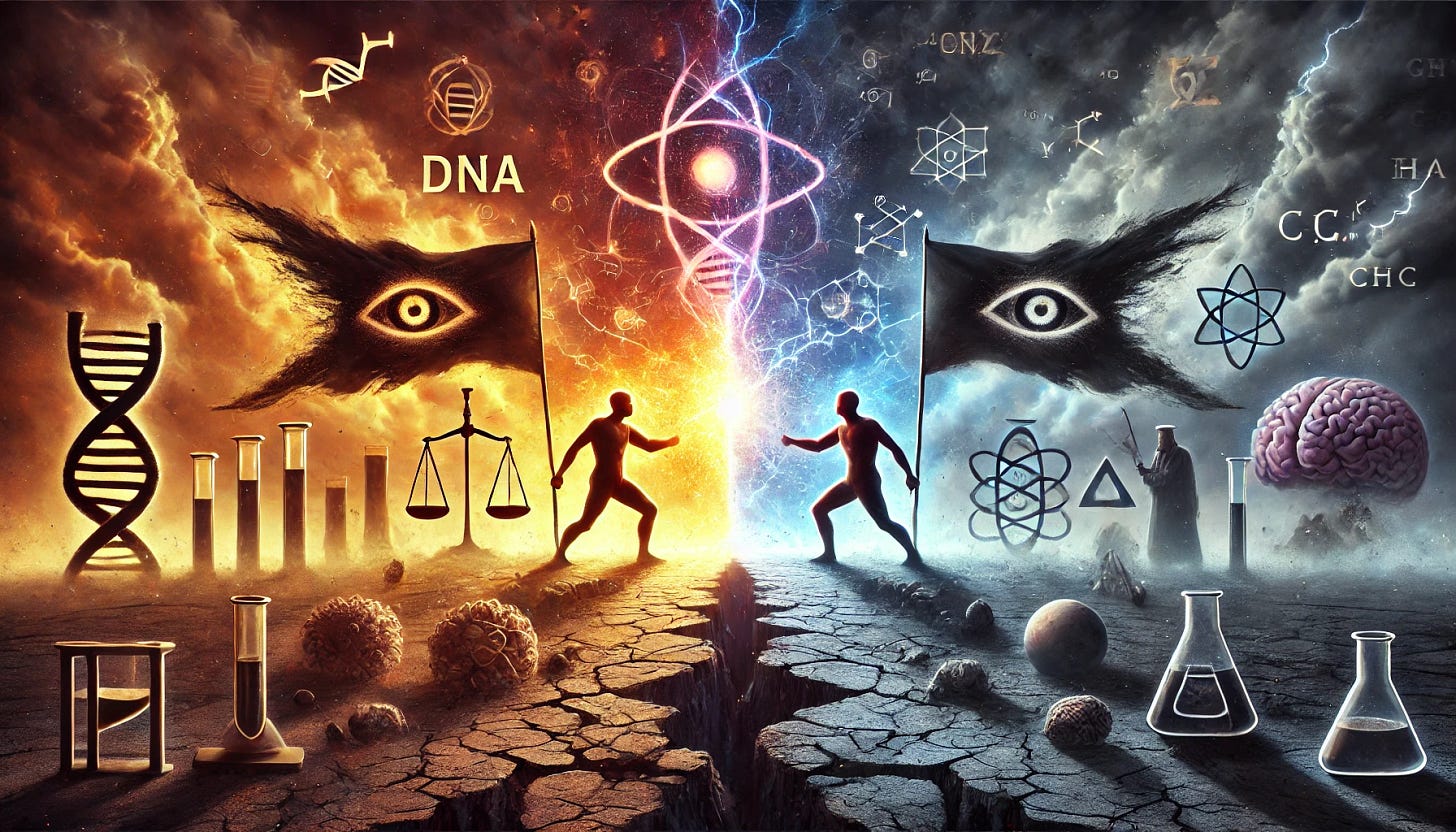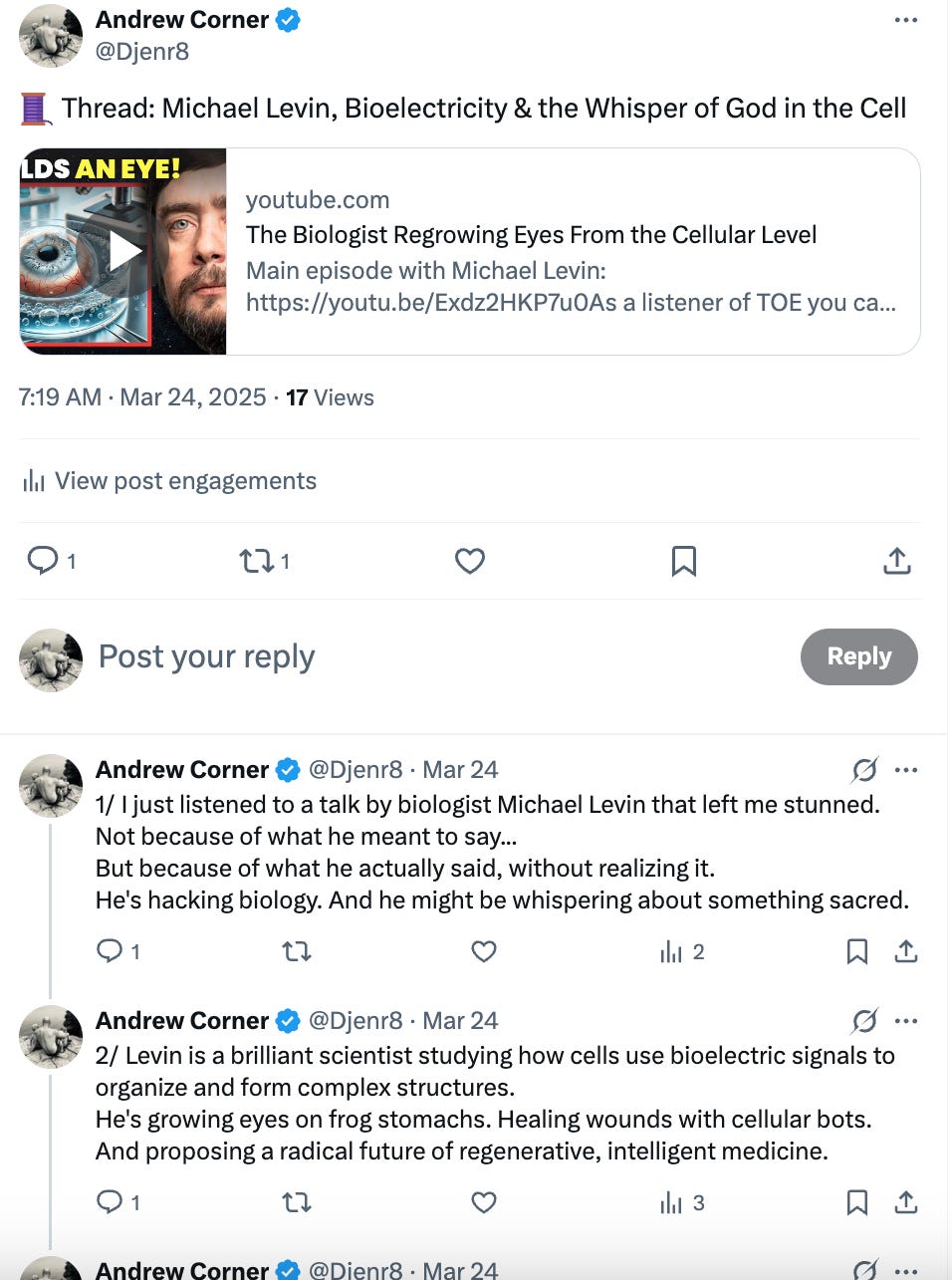(Note: this is just a reproduction of the original X article I posted March 24th, you can find a link to that article here. In fact I appear to be largely throttled on that site so if you like the article and could retweet I would be grateful.)
🔬 What is science?
At its core, science is:
Empirical (based on repeatable, observable phenomena),
Falsifiable (can be tested and potentially disproven),
Conservative in its conclusions (only infers what the evidence supports),
Cautious with extrapolation.
🧬 What Levin is actually doing:
Michael Levin is conducting fascinating research into bioelectric signaling, regeneration, and cell communication. This is legitimate and innovative science. Some of his experiments—like manipulating electrical gradients to induce regeneration or novel tissue growth—are real, measurable, and reproducible.
But then... he leaps. 🪂
He starts to:
Speculate on cognitive "light cones" for cells and tissues.
Use anthropomorphic metaphors like "cells making decisions" or having "goals."
Talk about reprogramming life toward some kind of post-Darwinian trans-human direction.
Suggest we "let go of old categories" like life vs. machine.
Imply future medicine will involve merging cognition, AI, and somatic interfaces, vaguely hinting at a sort of post-human embodiment.
🧠 So, what’s the issue?
While Levin’s research is real, his interpretive framework is deeply ideological:
He presupposes a computationalist, information-centric, almost panpsychist view of life.
He couches this in optimistic transhumanist ideology—where biology is a software platform we’re just beginning to "hack," and human bodies are seen as outdated accidents of evolution we can reimagine.
He believes evolution made mistakes or suboptimal choices, and we are now capable of correcting them. That’s not a neutral scientific statement; that’s a worldview.
🔁 Compare this to classic science:
A traditional biologist might ask: "Can we regenerate a limb under certain controlled conditions?" Michael Levin is asking: "Can we change what it means to have a body, or be human, by rewriting biological ‘software’ using AI and bioelectric patterns?"
That's not just science anymore.
🚨 The danger of ideological science:
When scientists don’t clearly separate the experimental from the aspirational, it opens the door to:
Techno-utopianism masquerading as evidence.
Dehumanization (humans reduced to circuits and code).
Moral relativism (if bodies are programmable, what is sacred?)
Uncritical acceptance of risky interventions with deep philosophical implications.
💬 Summary:
Michael Levin is a scientist doing real research, but his public framing of the work increasingly resembles ideological storytelling—complete with utopian visions, philosophical leaps, and spiritual language cloaked in biology.
It’s important we do notice that. Because the next generation of "biological software engineers" may not see the line at all.
Note: I followed up this short article with a tweet thread on a recent video product by Kurt Jaimungal’s “TOE” (Theory of Everything) podcast.
You can click the below screen shot to get there, or if you don’t have X and make a request I could reformat the thread.
It’s also worth noting that I pay for the X account and it’s supposed to boost my visibility, but you can see by engagements how little visibility I’m getting.


